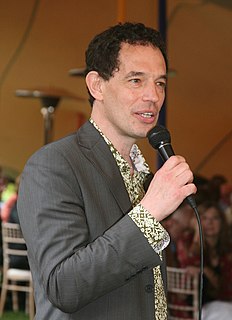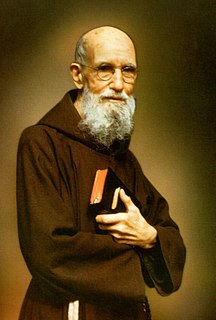A Quote by Neil Turok
I'd be perfectly happy with a mathematically precise description of how time began. I see science and religion as being two completely different things. I don't see science as relevant to the question of whether or not there's a God.
Related Quotes
Science tries to answer the question: "How?" How do cells act in the body? How do you design an airplane that will fly faster thansound? How is a molecule of insulin constructed? Religion, by contrast, tries to answer the question: "Why?" Why was man created? Why ought I to tell the truth? Why must there be sorrow or pain or death? Science attempts to analyze how things and people and animals behave; it has no concern whether this behavior is good or bad, is purposeful or not. But religion is precisely the quest for such answers: whether an act is right or wrong, good or bad, and why.
But in the end, science does not provide the answers most of us require. Its story of our origins and of our end is, to say the least, unsatisfactory. To the question, "How did it all begin?", science answers, "Probably by an accident." To the question, "How will it all end?", science answers, "Probably by an accident." And to many people, the accidental life is not worth living. Moreover, the science-god has no answer to the question, "Why are we here?" and, to the question, "What moral instructions do you give us?", the science-god maintains silence.
Science has only two things to contribute to religion: an analysis of the evolutionary, cultural, and psychological basis for believing things that aren't true, and a scientific disproof of some of faith's claims (e.g., Adam and Eve, the Great Flood). Religion has nothing to contribute to science, and science is best off staying as far away from faith as possible. The "constructive dialogue" between science and faith is, in reality, a destructive monologue, with science making all the good points, tearing down religion in the process.
Religion and science have nothing to do with each other, they're about different things, science is about the way the world works and religion is about [...] miracles. [...] And in any case, if you ask most ordinary people in church or in a mosque why they believe, it's almost certainly got something to do with the belief that God does wonderful things, that God intervenes, that God heals the sick, that God answers prayers, God forgives sins.
Science is like society and trade, in resting at bottom upon a basis of faith. There are some things here, too, that we can not prove, otherwise there would be nothing we can prove. Science is busy with the hither-end of things, not the thither-end. It is a mistake to contrast religion and science in this respect, and to think of religion as taking everything for granted, and science as doing only clean work, and having all the loose ends gathered up and tucked in. We never reach the roots of things in science more than in religion.
This much I can say with definiteness - namely, that there is no scientific basis for the denial of religion - nor is there in my judgment any excuse for a conflict between science and religion, for their fields are entirely different. Men who know very little of science and men who know very little of religion do indeed get to quarreling, and the onlookers imagine that there is a conflict between science and religion, whereas the conflict is only between two different species of ignorance.



































